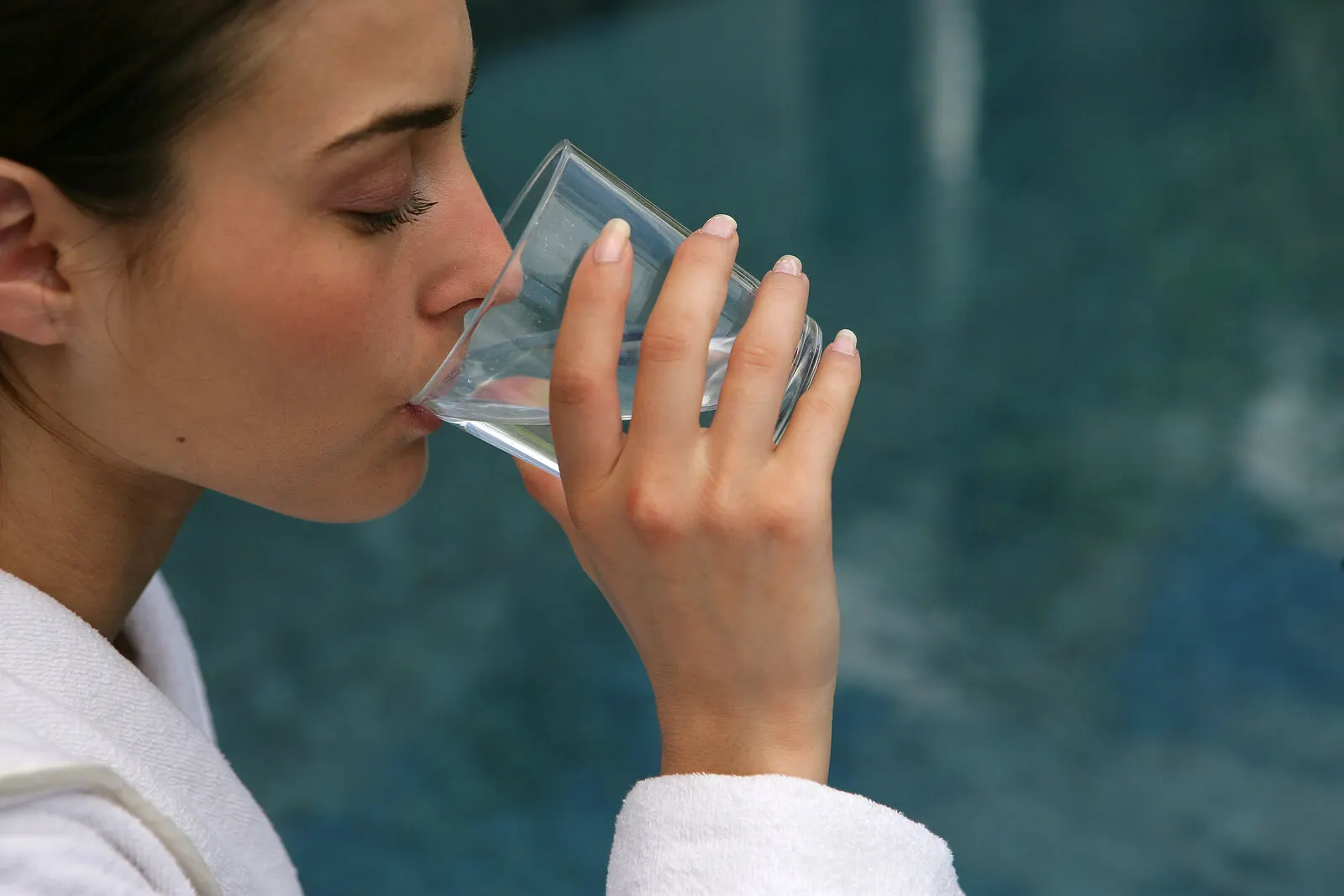The Benefits of Seawater

In some South American countries, it’s said that seawater helps to rid the body of negative energy. For this reason, many people decide to spend their vacations at the beach, bathing in the warm waters, hoping to renew themselves. Other people try to organize regular getaways to coastal areas, to enjoy the fresh air and to be beside the sea, even if they don’t venture into it. Find out all about the benefits of seawater in this article.
Certainly, spending time outdoors, looking at, feeling, and enjoying the aroma of the sea, the wind and the warmth of the sun is energizing. In light of this, it isn’t difficult to imagine how our well-being increases when we decide to take some time off.
However, some people believe that the benefits of seawater even extend to mental health. Let’s discover them below.
Curiosities about seawater

More than 4,000 years ago in China, Emperor Fu-Shi, known as the father of marine medicine, recommended drinking seawater and consuming seaweed to stay healthy.
French physiologist and naturalist René Quinton discovered that the components of seawater were the same as those in the body’s cells. And he claimed that seawater is very similar to blood plasma.
Years later, he founded the so-called “marine dispensaries” together with Dr. Jarricot. They used seawater to treat diseases such as cholera, thyroid, malnutrition, as well as skin problems.
Then, they bottled the seawater and called it “marine plasma”. These dispensaries were also created in countries such as Colombia, Argentina, Spain, Mexico, Uruguay, and South Africa.
The properties of seawater
On several occasions, the potential of seawater as a complementary element to maintain health has been studied.
However, experts point out that, despite the fact that this liquid has several minerals that could be beneficial, it’s best not to consume it. Not even as a complement to a healthy lifestyle.
To obtain the benefits of the minerals contained in seawater (magnesium, calcium, sodium, potassium), it is best to consume foods that contain them, which are very varied – fruits, vegetables, vegetables, cereals, meats, fish, etc.
In the chemical composition of seawater we can find zinc, iodine, potassium and trace elements such as silica, but this doesn’t mean that humans should consume it to obtain these elements.
Some people consider that seawater could be a good resource for body care in general. Its antibiotic properties, for example, would help to accelerate wound healing processes.

The benefits of seawater
So, if we look to other benefits of seawater instead of ingesting it, we could mention that floating or swimming in the sea helps to relax our muscles due to the iodine it contains. At the same time, this helps recovery from certain injuries. That’s why it’s ideal for those who are undergoing rehabilitation or are in the postoperative phase of an operation.
For people with respiratory diseases or problems, it’s usually recommended to breathe in the sea breeze.
Swimming in the sea is also recommended, as salt water helps the lungs to eliminate “toxins”, as pointed out in this study published in Oto-Rhino-Laryngologia Nova. For this reason, seawater is a remedy against coughs with phlegm, and colds.
Likewise, patients with arthritis (or osteoarthritis) could take advantage of the benefits of seawater. Swimming in the sea will help relieve the intense pain that often accompanies rheumatic ailments, although there are no recent research articles to corroborate this.
According to some researchers, patients with psoriasis should rub seawater on the affected areas. By doing so, the peeling layers of skin would fall off, more easily, of their own accord. The same would happen with the scalp, where the peeling skin can cause itching.
Before resorting to this remedy, we strongly recommend seeing a specialist doctor for their recommended treatment.
Read more here: Five Herbal Topical Psoriasis Treatments
The benefits of seawater: relationship and relief
In addition to being useful for exercising outdoors and clearing the mind, walks on the beach, in contact with seawater, are extremely pleasant. They’re an opportunity to talk with your partner or watch the sunset. The waves massage your feet while the sand exfoliates your heels.
Those who live near the sea should do “sea therapy” at least once a week. In summer, you could take a dip at the end of your workday. And, when it’s cold, just breathe in the cool breeze from the promenade. Both activities are very beneficial for your health.
If you live far away from the beach, don’t wait for vacations to visit one. Take advantage of a weekend or holiday and enjoy the benefits of seawater.
Although there aren’t any studies to support it, it’s often said that if you have trouble falling asleep, it would be advisable to take a walk along the seashore. It’s even said that it could be enough just to sit in front of the waves for a while, simply inhaling the sea air.
In short, the benefits of seawater are closely related to relaxation and the release of stress and emotional tension. At present, science hasn’t confirmed anything other aspects.
All cited sources were thoroughly reviewed by our team to ensure their quality, reliability, currency, and validity. The bibliography of this article was considered reliable and of academic or scientific accuracy.
- American Chemical Society. (2006). Chemistry in the community. Nueva York: W.H. Freeman.
- Mataix Verdú, J. (2008). Fisiología de la hidratación y nutrición hídrica. Madrid: Coca-Cola España.
- Park, Chris. (2007). A dictionary of environment and conservation. Oxford: Oxford UP.
- Lagarto Parra, A., & Bernal Sologuren, I. (2002). Utilización terapéutica de las aguas y fangos mineromedicinales. Revista Cubana de Farmacia, 36(1), 62-68.
- Kimata, H., Tai, H., & Nakajima, H. (2001). Reduction of allergic skin responses and serum allergen-specific IgE and IgE-inducing cytokines by drinking deep-sea water in patients with allergic rhinitis. Oto-Rhino-Laryngologia Nova, 11(6), 302-303.
- Nani, M., Zura, S., Majid, F. A. A., Jaafar, A. B., Mahdzir, A., & Musa, M. N. (2016). Potential health benefits of deep sea water: a review. Evidence-Based Complementary and Alternative Medicine, 2016.
This text is provided for informational purposes only and does not replace consultation with a professional. If in doubt, consult your specialist.








